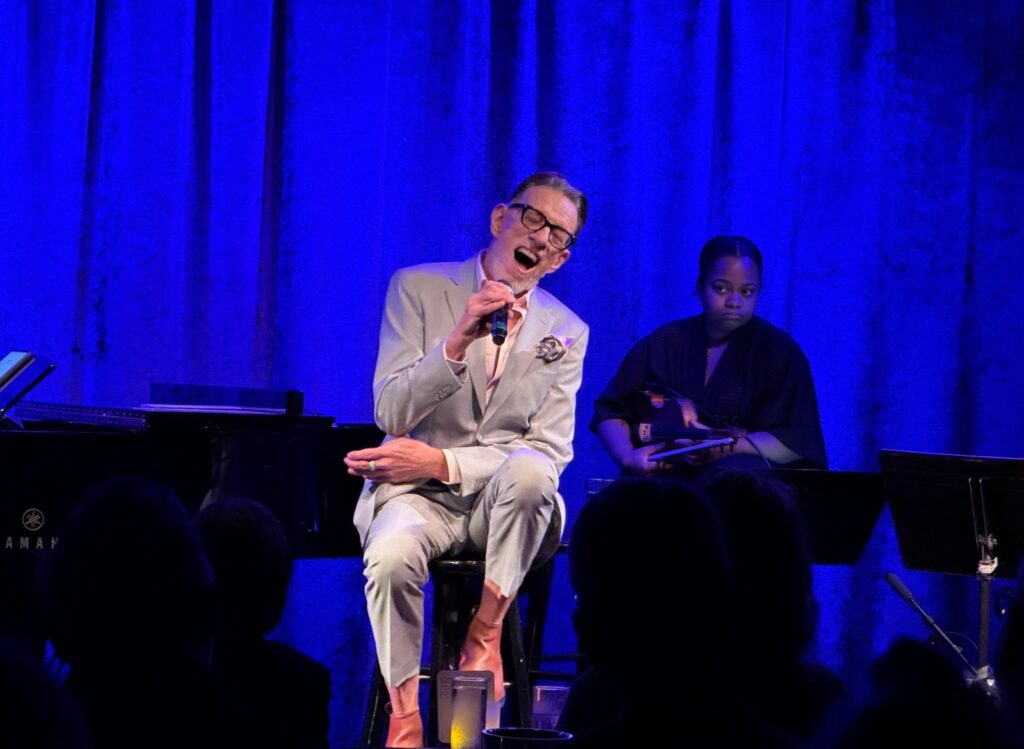As Cabaret Season Kicks Off, the Spirit of the Legendary Mabel Mercer Is in the Air
Singer Phillip Officer just performed an excellent tribute to Mercer at Birdland, while KT Sullivan is heading up the annual Mabel Mercer Foundation ‘cabaret convention’ next month.

The 35th Annual Mabel Mercer Foundation Cabaret Convention
Rose Hall, Jazz at Lincoln Center
October 23-25
KT Sullivan
Hotel Algonquin
Tuesdays
While it may not yet feel like autumn, the start of the traditional cabaret season is an unmistakable sign of the time. This year, the spirit of a major influence on the genre — the legendary Mabel Mercer (1900-84) — is more in the air than it has been in a long time.
The singer KT Sullivan, who for the last dozen years has served as artistic director of the Mabel Mercer Foundation, is in charge of the annual three-night “cabaret convention” that the foundation produces every October in conjunction with Jazz at Lincoln Center at its flagship venue, Rose Hall. In addition, another veteran cabaret singer, Phillip Officer, performed an excellent tribute to Mercer at Birdland earlier this week.
Ms. Sullivan only recently began accompanying herself on piano, and her Tuesday evenings in the lobby of the Hotel Algonquin — which always includes a generous amount of gems from the Mabel Mercer songbook — are as close as one can come to being in a great performer’s private living room.
If there are 50 people seated in the lobby, maybe half of them are hanging on to Ms. Sullivan’s every word and every note, and everyone else is respectful enough to keep quiet; yes, this place is the polar opposite of the dreaded Bemelmans, where it’s impossible to actually listen to the music.

Ms. Sullivan is a proper soprano with a full voice, yet at the “Gonk” she sings mostly in an intimate whisper. On a recent Tuesday, Ms. Sullivan enthralled all who came to listen with a number of Mercer-specific choices, including Noel Coward’s, “Sail Away,” as well as a number of songs that Mercer surely sang even if she never recorded them, like “All the Things You Are.”
She also surprised us with a few original versions of American standards that originated in Germany, i.e., “Just a Gigolo” and “Falling in Love Again.” Whether playing or singing, Ms. Sullivan is equally well known for her penchant for rarely heard verses as for sporting rarely seen headwear.
Mr. Officer’s show, “You Fascinate Me So — Phillip Officer Salutes Mabel Mercer,” was both an exciting and respectful tribute; for all the reverence in which Mercer held the Great American Songbook, there was always a sense of adventure and fun in her interpretations, which few contemporary acolytes understand as well as Ms. Sullivan and Mr. Officer.
He pointed out early in the show that there were two essentially unbreakable rules in every Mabel Mercer performance; she always sang seated, and she only opened her mouth to sing — never to speak. Mr. Officer abided by both those rules; he sang from a stool and went mostly from one song to another without any specific introductions, with the exceptions of several breaks to talk about Mercer herself.
He also honed to the general wisdom that Mercer was all about the lyric and nothing else. In actually, listening to some of her finest albums — particularly those with full orchestral accompaniment, like the 1963 “Mabel Mercer Sings” with Ralph Burns as musical director — you can hear that she did a lot with the melody as well, and her propensity for waltzes illustrates that she took the rhythm seriously.
Mr. Officer, working with a very full quartet consisting of pianist and musical director Mark Hartman, leading guitarist Kevin Kuhn, bassist Jonathan Michel, and violinist Mollie Rose, grasped all these implications of Mabel’s legacy. His most movingly melancholy outing was “Ballad of the Sad Young Men,” by Fran Landesman and Tommy Wolf, written for their 1959 show “The Nervous Set” and inspired by a title from F. Scott Fitzgerald.
He also included “End of a Love Affair,” a 1950 ballad by a friend of Mabel, Edward Redding, which she passed along to such disciples as Frank Sinatra, Nat King Cole, and even Wes Montgomery. He finished with a touching mashup of “Some Other Time,” “Ev’ry Time We Say Goodbye” and “My Shining Hour.”
This year, the Cabaret Convention honors the centennial of Mercer’s colleague, Bobby Short, as well as a Broadway composer, Charles Strouse. Next year, there will surely be a major concert in honor of the Great Lady’s 125th ceremonial birthday.
Mr. Officer, though, has already done her a major service in including a song by the late Sergio Mendes — with lyrics by Alan Bergman, who celebrates his 99th birthday this month — that, as far as we know, Mercer herself never sang. In doing so, Mr. Officer establishes that the influence and legacy of Mabel Mercer extends well beyond even her own songbook.

